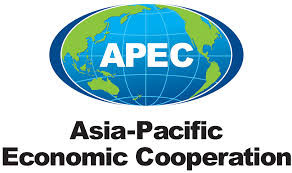
CDD Filings
Program Areas
-
This brief is submitted on behalf of several Consumer Privacy Organizations who seek to protect consumers from data breach, financial fraud, and identity theft. The Consumer Privacy Organizations associated with the EPIC amicus brief believe that a court order to compel Apple to develop a technique to break security features designed to keep out third parties will result in an increase in crime against consumers. The Electronic Privacy Information Center (“EPIC”) is a public interest research center in Washington, D.C., established in 1994 to focus public attention on emerging privacy and civil liberties issues. EPIC was specifically established to advocate for the use of strong encryption technology and for the development of related Privacy Enhancing Technologies. EPIC led the effort in the United States in the 1990s to support strong encryption tools and played a key role in the development of the international framework for cryptography policy that favored the deployment of strong security measures to safeguard personal information. EPIC also published the first comparative studies of international encryption policy. (See EPIC Cryptography and Libert 1998: An International Survey of Encryption Policy.) The Center for Digital Democracy (CDD) is one of the leading consumer protection and privacy organizations in the United States. Since its founding in 2001, CDD has been at the forefront of research, public education, and advocacy protecting consumers in the digital age. Constitutional Alliance is privately funded nonpartisan non-profit organiation whose stated mission is to "preserve state and national sovereignty, and the unalienable rights to life, liberty and the pursuit of happiness as pronounced in the Declaration of Independence and protected under the Bill of Rights of the United States of America." Consumer Action empowers underrepresented consumers nationwide to assert their rights in the marketplace and financially prosper through multilingual financial education materials, community outreach, and issue-focused advocacy. Consumer Watchdog is a nonprofit organization dedicated to educating and advocating on behalf of consumers for over 25 years.11 Its mission is to provide an effective voice for the public interest. Consumer Watchdog’s programs include health care reform, oversight of insurance rates, energy policy, protecting privacy rights, protecting legal rights, corporate reform, and political accountability. The Cyber Privacy Project researches and educates the public about privacy issues raised in today’s networked world. Patient Privacy Rights (“PPR”) works to empower individuals and prevent widespread discrimination based on health information using a grassroots, community organizing approach. PPR educates consumers, champions smart policies, and exposes and holds industry and the government accountable. The Privacy Rights Clearinghouse (“PRC”) is a nonprofit consumer education and advocacy organization based in San Diego, California. Established in 1992, the PRC focuses on consumers’ rights and interests relating to informational privacy, answers individual consumer inquiries, and maintains a robust website of practical privacy protection tips. Privacy Times provides accurate reporting, objective analysis and thoughtful insight into the events that shape the ongoing debate over privacy and Freedom of Information. --- See full brief attached.
-
Advocates To FTC: Stop Google’s Deceptive and Unfair Practices on YouTube Kids
New Complaints Also Urge Investigation of 17 Food and Beverage Companies For Violating Pledges Not to Target Junk Food to Children
Washington, DC–Tuesday, November 24, 2015 –Two leading child advocacy groups filed new complaints today at the Federal Trade Commission (FTC), urging the Commission to stop Google from engaging in unfair and deceptive practices toward children on its YouTube Kids app for kids five and younger. In two related FTC filings submitted today, Campaign for a Commercial-Free Childhood (CCFC) and Center for Digital Democracy (CDD) also called on the FTC to broaden its investigation of YouTube Kids to include Google’s relationships with multichannel video programmers; food, beverage and toy companies; its major YouTube advertising and “unboxing” video partners; and companies that specialize in “influencer” and product placement marketing on YouTube.“Our new complaints underscore why the FTC needs to stop Google from engaging in what are nothing less than harmful, unethical, and irresponsible practices that target America’s youngest children,” explained Jeff Chester, Executive Director of the Center for Digital Democracy. “The Commission now has ample evidence that Google’s actions are unfair and deceptive and violate Section 5 of the FTC Act. We call on Chairwoman Ramirez and the other Commissioners to complete their investigation and commence legal action against Google so that children and their parents will be protected when they use YouTube Kids.”In one of the complaints (link is external) filed today, CCFC and CDD urge the Commission to hold 17 food and beverage manufacturers accountable for violating the self-regulatory pledges they made as members of the Children’s Food and Beverage Advertising Initiative (CFBAI). A review of YouTube Kids by CCFC and CDD found hundreds of commercials and promotional videos for products these companies had publicly pledged not to market to children under the age of 12. For example, even though the Coca-Cola Company has pledged to not market any beverages to children under 12, CCFC and CDD found 47 television commercials and 11 longer promotional videos for Coke and Coke Zero on YouTube Kids. Similarly, Mondelez International has pledged not to market Oreos to children, but CCFC and CDD found 31 TV commercials and 21 product placements for Oreos on YouTube Kids. In one 11-minute video, the YouTube star Evan of “EvanTubeHD” and his sister compete to identify 12 different flavors of Oreos. [Evan HD is distributed by the Walt Disney Company’s Maker Studios division].“Far from being a safe place for kids to explore, YouTube Kids is awash with food and beverage marketing that you won’t find on other media platforms for young children,” said CCFC’s Josh Golin. “The Commission should investigate why Google’s algorithms aren’t configured to keep junk food marketing off of YouTube Kids, and hold food and beverage companies accountable for violating their pledges not to target their most unhealthy products to children.” “Food companies and Google have teamed up for an end run around America's parents,” said Dale Kunkel, Professor of Communication at University of Arizona. “YouTube Kids delivers hundreds of junk food video promotions while Google claims it allows no food advertising on the app, and food companies promise the FTC they won't advertise products like Snickers and Oreos to children. It’s hard to believe this is all happening in broad daylight.”The second FTC complaint (link is external) filed today significantly expands upon the groups’ initial complaint filed on April 7, 2015 (link is external). It documents that many videos on YouTube Kids appear to result from relationships and payments between advertisers, YouTube creators, and various intermediaries, including multichannel video programmers and advertising agencies that specialize in “influencer” marketing. Because these relationships are not disclosed on YouTube Kids as required by the FTC’s Endorsement Guide, CCFC and CDD call on the FTC to investigate the contractual and other business connections between Google and its YouTube commercial partners and affiliates.The second complaint also explains how changes made by Google to YouTube Kids do not alleviate the problems raised in the original complaint—that YouTube Kids targets children with deceptive and unfair advertisements, and Google markets YouTube Kids to parents in a deceptive manner. “When Google launched YouTube Kids in February, it falsely told parents that ‘all advertisements in the YouTube Kids app must comply’ with its Ad Policy prohibiting ads for certain products, including food and beverages,” said Professor Angela Campbell of Georgetown University’s Institute for Public Representation, counsel for CCFC and CDD. “Instead of enforcing its Ad Policy, Google changed its policy so that it does not apply to traditional TV commercials or longer promotional videos. This is a major disservice to children and parents alike.”----See complaints attached. -
Consumer Group Challenges Jest8’s Application for New COPPA Parent Verification Technology
Tells FTC to “Just Say No” to Unproven, Unsafe Parental Consent Method
Washington, DC - September 14,th 2015 - The Center for Digital Democracy (CDD) filed comments at the Federal Trade Commission (FTC) in response to an application from Jest8 Limited (trading as Riyo) for a new verifiable parental consent (VPC) method that purports to be in compliance with the Children’s Online Privacy Protection Act (COPPA). That act requires the operators of websites directed at children under 13 to obtain verifiable parental consent before collecting any personal information from a child. But as CDD’s detailed filing makes clear, Jest8’s system, which attempts to match a photo of a parent with a photo of that parent’s ID, fails on three fundamental counts: (1) it does not ensure that the person submitting the photographic evidence is, in fact, the parent; (2) it does not satisfactorily demonstrate that its facial recognition algorithms are sufficiently reliable to be deployed in the sensitive area of children’s privacy; and (3) it poses a severe risk to the consumer data that it collects in the process of undertaking its “Face Match to Verified Photo Identification,” with no assurance that it it will promptly delete such data as promised. The filing also raises questions about the applicant’s lack of any background on privacy issues, especially those that address the needs of children.“The FTC must ensure that a parent is actually authorizing the collection of their child’s data,” explained CDD executive director Jeff Chester. “Jest8 fails to provide any serious guarantee that a child’s privacy will be protected, and that their parent or guardian has made an informed decision.”CDD (through its predecessor, the Center for Media Education) spearheaded the campaign that led to the passage of COPPA in 1998. More recently, CDD successfully organized the effort to update and strengthen the COPPA rules in 2012, working with a coalition of consumer, child advocacy, and health organizations.A copy of CDD’s FTC filing is available at www.democraticmedia.org.The CDD's comments on Jest8's application, attached below. -
Advocates Charge Google with Deceiving Parents about Content on YouTube Kids
App for preschoolers is rife with videos that are potentially harmful to children
Washington, DC – Tuesday, May 19 – Two leading child and consumer advocacy groups have filed an important update to their Federal Trade Commission complaint against Google’s YouTube Kids app for false and deceptive marketing. In a letter sent to the Commission today, the groups charged that Google is deceiving parents by marketing YouTube Kids as a safe place for children under five to explore when, in reality, the app is rife with videos that would not meet anyone’s definition of “family friendly.” A review by the Campaign for a Commercial-Free Childhood (CCFC) and Center for Digital Democracy (CDD) has found a significant amount of content that would be extremely disturbing and/or potentially harmful for young children to view, including: Explicit sexual language presented amidst cartoon animation Videos that model unsafe behaviors such as playing with lit matches, shooting a nail gun, juggling knives, tasting battery acid, and making a noose A profanity-laced parody of the film Casino featuring Bert and Ernie from Sesame Street Graphic adult discussions about family violence, pornography, and child suicide Jokes about pedophilia and drug use Advertising for alcohol products CDD and CCFC provided a video (link is external) to the FTC today documenting an array of inappropriate content that can found on YouTube Kids. “Federal law prevents companies from making deceptive claims that mislead consumers," said Aaron Mackey, the coalition’s attorney at Georgetown Law's Institute for Public Representation. "Google promised parents that YouTube Kids would deliver appropriate content for children, but it has failed to fulfill its promise. Parents rightfully feel deceived by YouTube Kids." Google claims that YouTube Kids was “built from the ground up with little ones in mind” and is “packed full of age-appropriate videos.” The app includes a search function that is voice-enabled for easy use for preschool children. Google says it uses “a mix of automated analysis, manual sampling, and input from our users to categorize and screen out videos and topics that may make parents nervous.” Google also assures parents that they “can rest a little easier knowing that videos in the YouTube Kids app are narrowed down to content appropriate for kids.” But, as the complaint explains: Google does not, in fact, “screen out the videos that make parents nervous” and its representations of YouTube Kids as a safe, child-friendly version of YouTube are deceptive. Parents who download the app are likely to expose their children to the very content they believed they would avoid by using the preschool version of YouTube. In addition to the unfair and deceptive marketing practices we identified in our initial request for an investigation, it is clear that Google is deceiving parents about the effectiveness of their screening processes and the content on YouTube Kids. “In the rush to expand its advertising empire to preschoolers, Google has made promises about the content on YouTube Kids that it is incapable of keeping,” said Josh Golin, Associate Director of CCFC. “As a parent, I was shocked to discover that an app that Google claims is safe for young children to explore includes so much inappropriate content from the Wild West of YouTube.” Today’s letter is an update to the advocates’ April 7, 2015 FTC complaint that charged Google with engaging in unfair and deceptive practices towards children and their parents. That complaint detailed how YouTube Kids featured ads and other marketing material that took advantage of children’s developmental vulnerabilities. It also noted that the “blending of children’s programming content with advertising material on television has long been prohibited because it is unfair and deceptive to children. The fact that children are viewing the videos on a tablet or smart phone screen instead of on a television screen does not make it any less unfair and deceptive.” The complaint also called on the FTC to address the failure by Google to disclose that many makers of so-called “user-generated” videos featuring toys and candy have relationships with those product's manufacturers. “The same lack of responsibility Google displayed with advertising violations on YouTube Kids is also apparent in the content made available on the app,” observed Dale Kunkel, Professor of Communication at University of Arizona. “There is a serious risk of harm for children who might see these videos. It’s clear Google simply isn’t ready to provide genuinely appropriate media products for children.” Added Jeff Chester, executive director of CDD, “Google gets an 'F' when it comes to protecting America’s youngest kids. The failure of the most powerful and technologically advanced media company to create a safe place for America’s youngest kids requires immediate action by the FTC.” Today’s letter to the FTC is available below. The coalition’s original FTC complaint is available at http://bit.ly/1LeQHCN. The compilation of YouTube Kids video clips can be viewed at https://vimeo.com/127837914 (link is external). -
Child and Consumer Advocates Urge Federal Trade Commission to Investigate and Bring Action Against Google
for Excessive and Deceptive Advertising Directed at Children
Washington, DC – Tuesday, April 7 – A coalition of prominent children’s and consumer advocacy groups filed a complaint with the Federal Trade Commission (FTC) today requesting an investigation of Google, charging the company with unfair and deceptive practices in connection with its new YouTube Kids app. The complaint (link is external) details a number of the app’s features that take advantage of children’s developmental vulnerabilities and violate long-standing media and advertising safeguards that protect children viewing television. Among the specific practices identified in the complaint are: Intermixing advertising and programming in ways that deceive young children, who, unlike adults, lack the cognitive ability to distinguish between the two; Featuring numerous “branded channels” for McDonald’s, Barbie, Fisher-Price, and other companies, which are little more than program-length commercials; Distributing so-called “user-generated” segments that feature toys, candy, and other products without disclosing the business relationships that many of the producers of these videos have with the manufacturers of the products, a likely violation of the FTC’s Endorsement Guidelines. When it launched the YouTube Kids app in February, Google described it as “the first Google product built from the ground up with little ones in mind.” As the complaint points out, however, the company appears to have ignored not only the scientific research on children’s developmental limitations, but also the well-established system of advertising safeguards that has been in place on both broadcast and cable television for decades. Those important policies include (1) a prohibition against the host of a children’s program from delivering commercial messages; (2) strict time limits on the amount of advertising any children’s program can include; (3) the prohibition of program-length commercials; and (4) the banning of “product placements” or “embedded advertisements.” Such “blending of children’s programming content with advertising material on television,” the group’s complaint declares, “has long been prohibited because it is unfair and deceptive to children. The fact that children are viewing the videos on a tablet or smart phone screen instead of on a television screen does not make it any less unfair and deceptive.” The complaint also charges that Google is violating its own advertising policies for YouTube Kids. For example, while the company promises that food and beverage ads will not appear on the app, advertising and promotions for junk food are prominently featured throughout. “YouTube Kids is the most hyper-commercialized media environment for children I have ever seen,” commented Dale Kunkel, Professor of Communication, University of Arizona. “Many of these advertising tactics are considered illegal on television, and it's sad to see Google trying to get away with using them in digital media.” “There is nothing 'child friendly' about an app that obliterates long-standing principles designed to protect kids from commercialism,” added Josh Golin, Associate Director of Campaign for a Commercial-Free Childhood. “YouTube Kids exploits children’s developmental vulnerabilities by delivering a steady stream of advertising that masquerades as programming. Furthermore, YouTube Kids' advertising policy is incredibly deceptive. To cite just one example, Google claims it doesn't accept food and beverage ads but McDonald's actually has its own channel and the 'content' includes actual Happy Meal commercials.” Angela J. Campbell of the Institute for Public Representation at Georgetown Law, who serves as counsel to the coalition, called on the FTC to "investigate whether Disney and other marketers are providing secret financial incentives for the creation of videos showing off their products. The FTC’s Endorsement Guides require disclosure of any such relationships so that consumers will not be misled." “In today’s digital era, children deserve effective safeguards that will protect them regardless of the ‘screen’ they use,” explained Jeff Chester, Executive Director of the Center for Digital Democracy. “In addition to ensuring that Google stops its illegal and irresponsible behavior to children on YouTube Kids, new policies will be required to address the growing arsenal of powerful digital marketing and targeting practices that are shaping contemporary children’s media culture – on mobile phones, social media, gaming devices, and online video platforms.” Organizations signing the complaint include: the Center for Digital Democracy, Campaign for a Commercial-Free Childhood, American Academy of Child and Adolescent Psychiatry, Center for Science in the Public Interest, Children Now, Consumer Federation of America, Consumer Watchdog, Consumers Union, Corporate Accountability International, and Public Citizen -
In December, CDD urged the FTC to reject the verifiable parental consent mechanism for COPPA (Children's Online Privacy Protect Act) proposed by AgeCheq. The comments are attached. Ensuring meaningful parental consent so their child's data can be gathered and used requires a robust and effective system. Parents need to understand precisely what data is collected and by what means; how it is to be used--now and in the future--as well as the business models and online marketing practices that can affect them. CDD and its attorneys at Georgetown Law Center found a range of problems with AgeCheq's submission. The commission should decline approving its parental system for COPPA. Yesterday, the commission announced (link is external) it agreed with CDD and rejected Agecheq's proposal. Eric Null, Staff Attorney at the Institute for Public Representation, Georgetown Law Center, which represented CDD, said that "We are pleased that the FTC followed CDD's recommendation to reject AgeCheq's application for a verifiable parental consent mechanism. This is a true victory for parents and children and sends the message that future applicants must ensure their system meets the COPPA standards."
-
News
Consumer, Privacy, Child Health Groups Challenge Federal Trade Commission’s Proposed Settlement with TRUSTe
Consumer, Children’s, and Privacy Groups Challenge Federal Trade Commission’s Proposed Settlement with TRUSTe (True Ultimate Standards Everywhere, Inc.) As Too Lenient Stronger Sanctions Needed for TRUSTe’s Violation of the Public Trust Consumers—Especially Parents—Materially Harmed by Years of Deception Washington, DC: The Center for Digital Democracy (CDD), through its counsel the Institute for Public Representation and on behalf of the American Academy of Child and Adolescent Psychiatry, Campaign for Commercial Free Childhood, Consumer Action, Consumer Federation of America, Consumer Watchdog, and The Rudd Center for Food Policy and Obesity, filed comments today at the Federal Trade Commission (FTC) in response to that agency’s proposed Agreement and Consent Order with True Ultimate Standards Everywhere, Inc. (“TRUSTe”). In November, after conducting an investigation, the FTC filed a complaint against TRUSTe, a company that has been issuing various “privacy seals” since 1997. The display of such seals indicate that a website has been reviewed annually by TRUSTe to ensure it is compliance with TRUSTe’s program requirements designed to protect consumer privacy. In fact, according to the FTC TRUSTe deceived consumers in two important respects. First, TRUSTe failed in over one thousand instances between 2006 and 2013 to conduct the annual re-certifications that it told consumers and the FTC it was conducting. Second, the company failed to require the companies using its privacy seals to change references to TRUSTe’s nonprofit status after it became a for-profit operation in 2008. As CDD’s filing makes clear, these violations are especially significant coming from a company that is entrusted with verifying the self-regulatory privacy-protection efforts of thousands of companies—including some of the biggest in the world—and covering such important areas of concern as the Children’s Online Privacy Protection Act (COPPA) and the EU-US Safe Harbor framework for transatlantic data transfers. Thus while the filing applauds the FTC’s enforcement action against TRUSTe, it finds the proposed sanctions—a $200,000 fine and additional recordkeeping and reporting requirements concerning the COPPA safe harbor program—to be far too lenient. “Safe harbors such as TRUSTe,” the filing points out, “play a pivotal role protecting children’s privacy by prohibiting the collection, use or disclosure of personal information without meaningful notice to parents and advance, verifiable parental consent, limiting the amount of data collected from children and protecting the security of data that is collected.” Unfortunately, because the FTC neither revealed the websites and services that were not properly re-certified, nor estimated the number of consumers who were affected by these violations, consumers—including parents concerned for their children’s privacy—are left wondering just how much meaningful privacy protection they have online. In addition to calling for a significant increase in the size of TRUSTe’s payment (citing individual companies that have paid as much as $1 million for their COPPA violations in the past), CDD’s filing called for all COPPA safe harbor reports (including those filed by TRUSTe) be made available to the public on the FTC’s website in a timely manner. Angela Campbell, co-director of the Institute for Public Representation, emphasized that “Parents rely on seal programs such as TRUSTe when deciding whether a particular website is appropriate for their children. Misrepresentations such as these have the potential to put millions of children at risk across potentially hundreds or thousands of child-directed websites. The FTC must do more to restore public trust in the COPPA safe harbor programs.” “The commission needs to stand up for children and their parents,” explained Jeff Chester, executive director of CDD. “If the FTC had adequately engaged in oversight of these programs, such problems would have been identified earlier,” he noted. “Those companies such as TRUSTe that have pledged to truly protect the privacy of American children should be required to make public how they actually determine whether online companies targeting kids engage in fair and responsible practices.” A copy of CDD’s FTC filing is available at www.democraticmedia.org. --30-- -
Project
Privacy Groups Call for Major Changes on APEC Cross-Border Data Rules; Raises Questions about work of TRUSTe
On 3 December 2014 a coalition of privacy and consumer groups sent a Joint Submission to APEC asking for significant changes to the APEC Cross Border Privacy Rules system (CBPRs). The submission is available here. (link is external) This joint submission follows a long period of opposition by civil society representatives to the first implementation of the CBPRs, which has now been operating in the US for 18 months. The submission raises concerns at the growing number of false claims of APEC certification and the absence of an official accurate list of members. One key aspect of the submission is that the signatories oppose the appointment of TRUSTe (link is external) as an Accreditation Agent for the CBPRs in the US, citing weaknesses in their program criteria, conflicts of interest, and the unacceptable use of fine print exclusions in TRUSTe certified privacy policies. The group calls on APEC to reform its CBPRs or close it down. The coalition includes: the Australian Privacy Foundation; the Canadian Internet Policy & Public Interest Clinic; the US Center for Digital Democracy; and the Electronic Privacy Information Center. -
News
U.S. PIRG Education Fund & CDD File Add'l Comments on Big Data at FTC: Urge Action to Rein in "Wild West" of Unfair & Discriminatory Practices
U.S. PIRG Education Fund and the Center for Digital Democracy (CDD) respectfully submit these additional comments to the Federal Trade Commission (FTC). A set of regulatory and other safeguards is urgently required to ensure that contemporary “Big Data”-driven financial services are used in an equitable, transparent, and responsible manner. All Americans, especially those who confront daily challenges to their economic security, should be assured that their lives will be enhanced—not undermined—by the new digital-data financial services marketplace. A closer critical examination of the commercial information infrastructure in the U.S. reveals a set of well-developed and interconnected data collection and use practices that few consumers are aware of—let alone have consented to. While the commission’s September 2014 workshop explored some of the key issues, it did not sufficiently examine the implications of current “Big Data” business practices. U.S. PIRG Education Fund and CDD urge the commission to issue a final report that addresses the issues we identify [see attached file]. -
Project
CDD calls on Obama Adm. to seek strong privacy rules for Big Data/Urges FTC Rulemaking & End of Self-reg stakeholder process
Today was the deadline (link is external) for Comments to be filed in the President's Big Data and privacy proceeding. CDD filed the attached comments, and also joined with a NGO coalition on thie issue representing the civil rights, consumer and privacy communities. CDD's filing urged the following:The Obama Administration should offer legislation that ensures its Consumer Privacy Bill of Rights framework actually provides individuals with the control over how their personal information is collected and used. Individuals should have the ability to make meaningful decisions about their information, regardless of whether it is collected by a social network, mobile operator, app network, financial institution, etc.Legislation should provide regulatory rulemaking authority to the Federal Trade Commission (FTC) on consumer privacy issues to develop these new rights. Legislation should require the FTC to conduct the necessary proceedings leading to a rulemaking within one year from the enactment of legislation. The same legislation should also call on agencies that currently have rulemaking authority, including the Consumer Financial Protection Bureau (CFPB), the Federal Communications Commission (FCC) and the Food and Drug Administration (FDA), to immediately initiate proceedings on consumer financial, telecommunications, and digital health privacy, respectively. Other agencies with sectorial authority on privacy issues not covered by the FTC and others should also be mandated to develop regulations.The current “multistakeholder” process convened by the NTIA should be replaced by the relevant agency rulemakings. The legislation should acknowledge the threats that much of Big Data-related collection pose to Americans today, and strongly state that it is in the best interests of the nation that businesses refrain from their current practice of ubiquitous data collection and profiling. It should accept that self-regulation has failed.The FTC, CFPB, FCC, and FDA should be mandated to report to the Nation, within six months after legislation is enacted, on how commercial Big Data practices are currently being used in ways that may be harmful to the public and not in the national interest. These reports should identify how current practices can discriminate against Americans, based on their race/ethnicity, sexual orientation, income status, age, residence, and other key variables.Based on these reports, the agencies will propose special regulatory safeguards as required to address sensitive data concerns.






